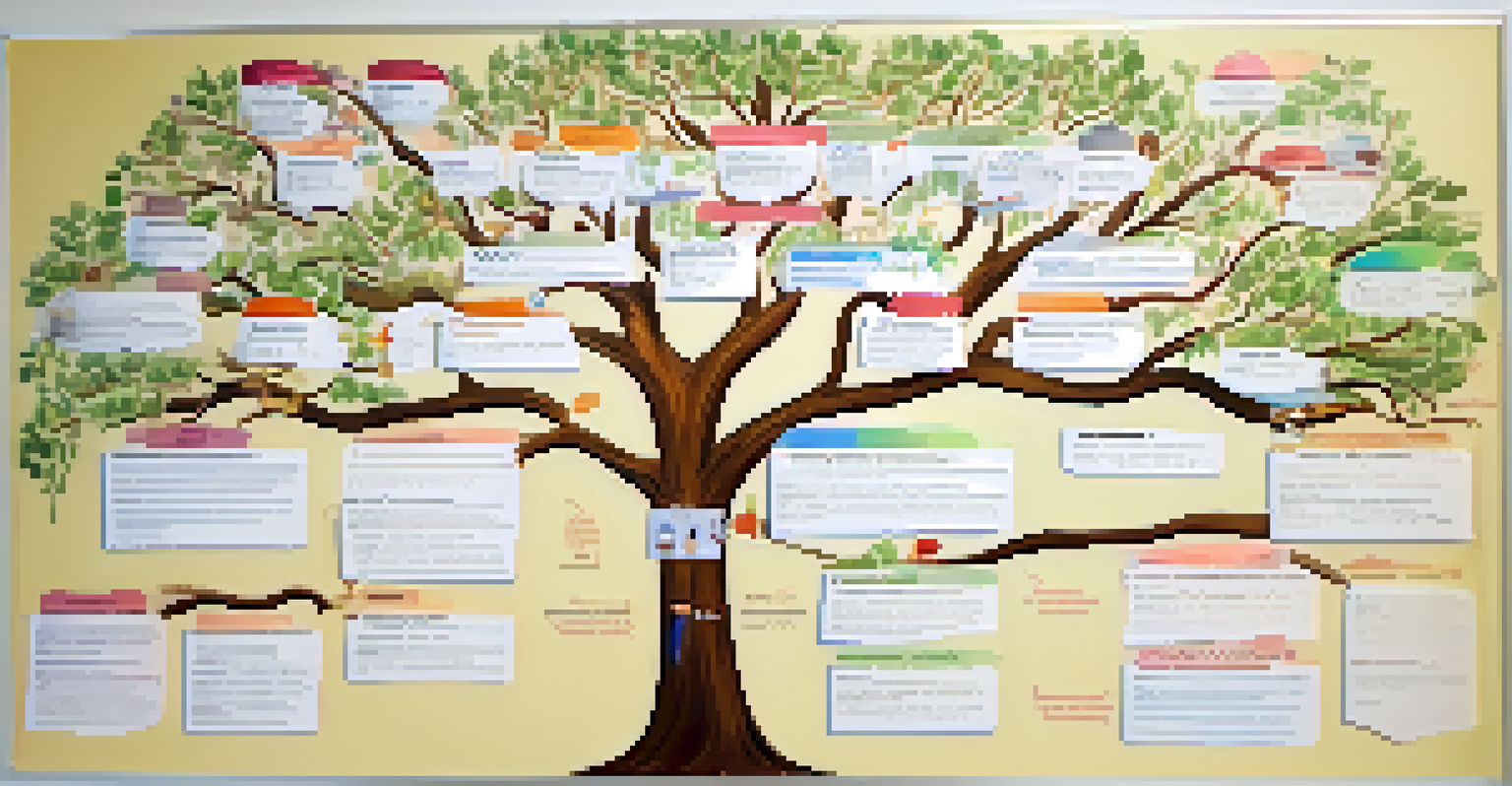Family Health History: A Tool for Better Dietary Choices

What is Family Health History and Why Does It Matter?
Family health history is a record of health information about you and your close relatives. It includes information about diseases, conditions, and health behaviors that run in families. Understanding your family's health background can provide valuable insights into your own health risks and guide your dietary choices.
Knowing your family history is a critical step in understanding your own health risks.
For instance, if heart disease is common in your family, it might be wise to adopt a heart-healthy diet rich in fruits, vegetables, and whole grains. Similarly, a family history of diabetes can encourage you to monitor your sugar intake. This awareness helps you make informed dietary decisions tailored to your genetic predispositions.
Recognizing patterns in your family's health history not only empowers you to take charge of your health but also promotes proactive lifestyle changes. In essence, knowing where you came from can significantly influence where you're headed health-wise.
How to Gather Your Family Health History
Gathering your family health history can be as simple as having open conversations with relatives. Start by asking your parents, grandparents, and siblings about any chronic illnesses or conditions they've experienced. Documenting these details can help you build a comprehensive picture of your family's health landscape.

Consider using a family tree diagram to visually map out health conditions, making it easier to spot trends or hereditary issues. This isn't just about diseases; include lifestyle factors like diet and exercise habits that can also impact health. The more information you collect, the better prepared you'll be to make dietary choices that suit your needs.
Family Health Affects Personal Risks
Understanding your family's health history can provide insights into your personal health risks and guide your dietary choices.
Don't forget to update this history regularly, especially as you learn more about your family's health. It’s an ongoing process that can evolve over time, providing new insights that might influence your dietary decisions.
Identifying Dietary Risks Through Family History
Understanding your family's health challenges can help identify dietary risks that may be relevant to you. If certain conditions, like high cholesterol or obesity, are prevalent in your family, adjusting your diet to mitigate these risks becomes essential. This may involve cutting back on saturated fats, sugars, and processed foods, which can contribute to these issues.
The choices we make about food today will shape our health tomorrow and the health of generations to come.
For example, if your family has a history of osteoporosis, ensuring adequate calcium and vitamin D intake through diet is crucial. This knowledge allows you to be proactive rather than reactive about your health. Knowing these risks can also motivate you to adopt healthier eating habits that can lead to better long-term outcomes.
Recognizing these connections between family health history and dietary choices can empower you to take charge of your wellbeing. By tailoring your diet to address potential risks, you can create a healthier future for yourself and your family.
Dietary Choices for Common Genetic Conditions
Certain genetic conditions can benefit from specific dietary adjustments. For instance, if there's a history of celiac disease in your family, adopting a gluten-free diet may be necessary. This proactive step can help prevent symptoms and complications associated with this condition.
Similarly, families with a history of lactose intolerance must consider dairy alternatives to maintain digestive health. Being aware of these issues allows you to adapt your diet effectively. It's about making choices that not only cater to your personal health but also honor your family's experiences.
Gathering Health History Is Key
Collecting information from relatives about health conditions and lifestyle factors helps create a comprehensive view of your family's health landscape.
By learning about these common conditions and their dietary implications, you can be better prepared to make the right food choices for your health. This knowledge not only protects you but can also provide guidance to future generations in your family.
The Role of Nutritionists and Health Professionals
Consulting with a nutritionist or healthcare professional can be beneficial in interpreting your family health history. These experts can help you understand how your family's health conditions might influence your dietary needs. They can provide personalized dietary recommendations based on your unique health profile.
Working with a professional means you can create a tailored meal plan that considers both your family history and personal preferences. This collaborative approach can make the journey to healthier eating more achievable. Nutritionists can also educate you on how to read food labels, manage portion sizes, and make healthier substitutions.
Ultimately, enlisting the help of a professional can provide a roadmap for navigating dietary choices effectively. They'll empower you with the knowledge and tools you need to take charge of your health.
Creating a Family Health Action Plan
A family health action plan is a proactive strategy that outlines steps to improve your family's health based on gathered health history. This could include creating meal plans that focus on heart health or diabetes management. Having a clear action plan helps to streamline efforts toward healthier eating and lifestyle changes.
Involving your family members in this process can foster a supportive environment. Everyone can contribute their ideas and preferences, making the plan more inclusive and easier to stick to. This shared responsibility can encourage accountability and motivate everyone to adopt healthier habits together.
Proactive Dietary Adjustments Matter
Making informed dietary choices based on family health history can empower you to mitigate potential health risks and promote better long-term outcomes.
Regularly revisiting and updating this action plan can ensure it remains relevant as health needs change. By doing so, you not only prioritize your health but also strengthen family bonds through collective wellness efforts.
Making Healthier Choices for Future Generations
The choices you make today can significantly impact the health of future generations. By understanding your family health history, you can set a positive example for your children and relatives. Teaching them about the importance of healthy eating and lifestyle habits can create a ripple effect that benefits the entire family.
Incorporating family meals that emphasize nutrition can instill good habits early on. For instance, preparing meals together or exploring healthy recipes can make eating well a fun, family-oriented activity. This not only promotes better health but also encourages family bonding.

By prioritizing healthier choices now, you're paving the way for a healthier future for your family. It's about creating a legacy of wellness that can be passed down through generations, ensuring everyone benefits from the knowledge you've gained.